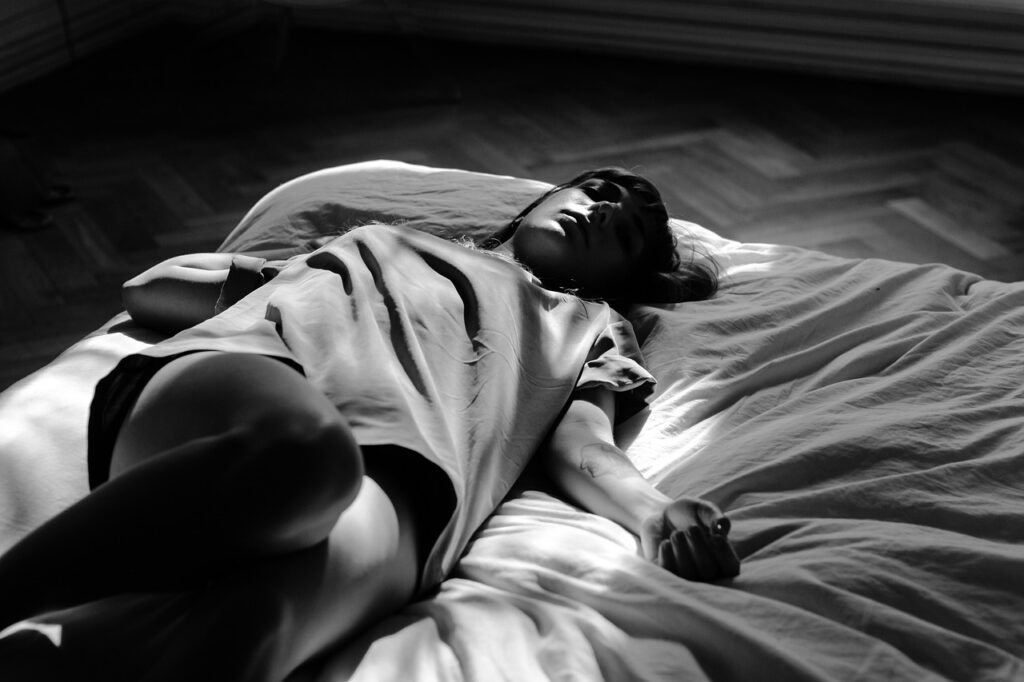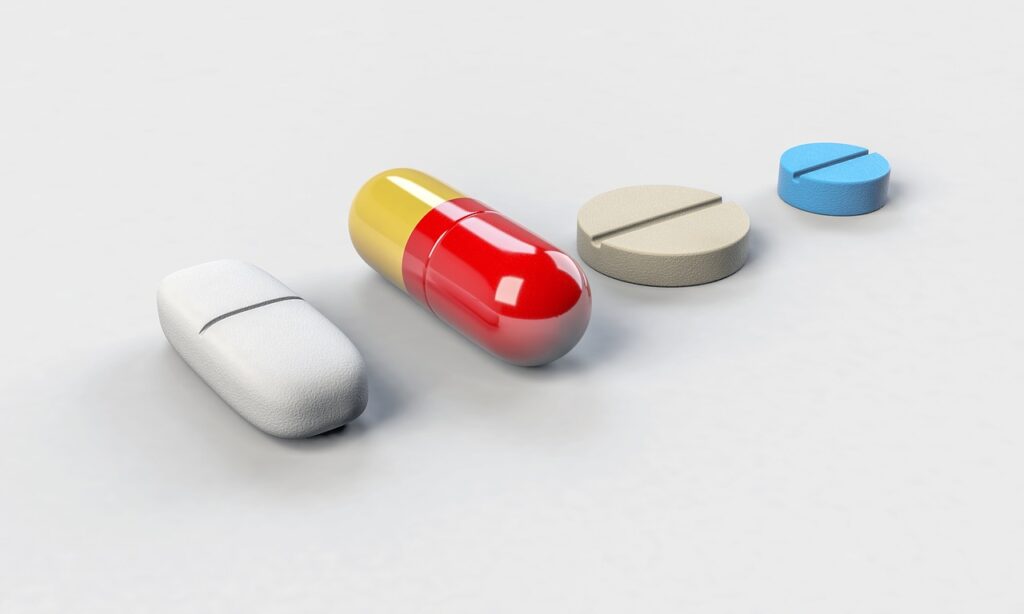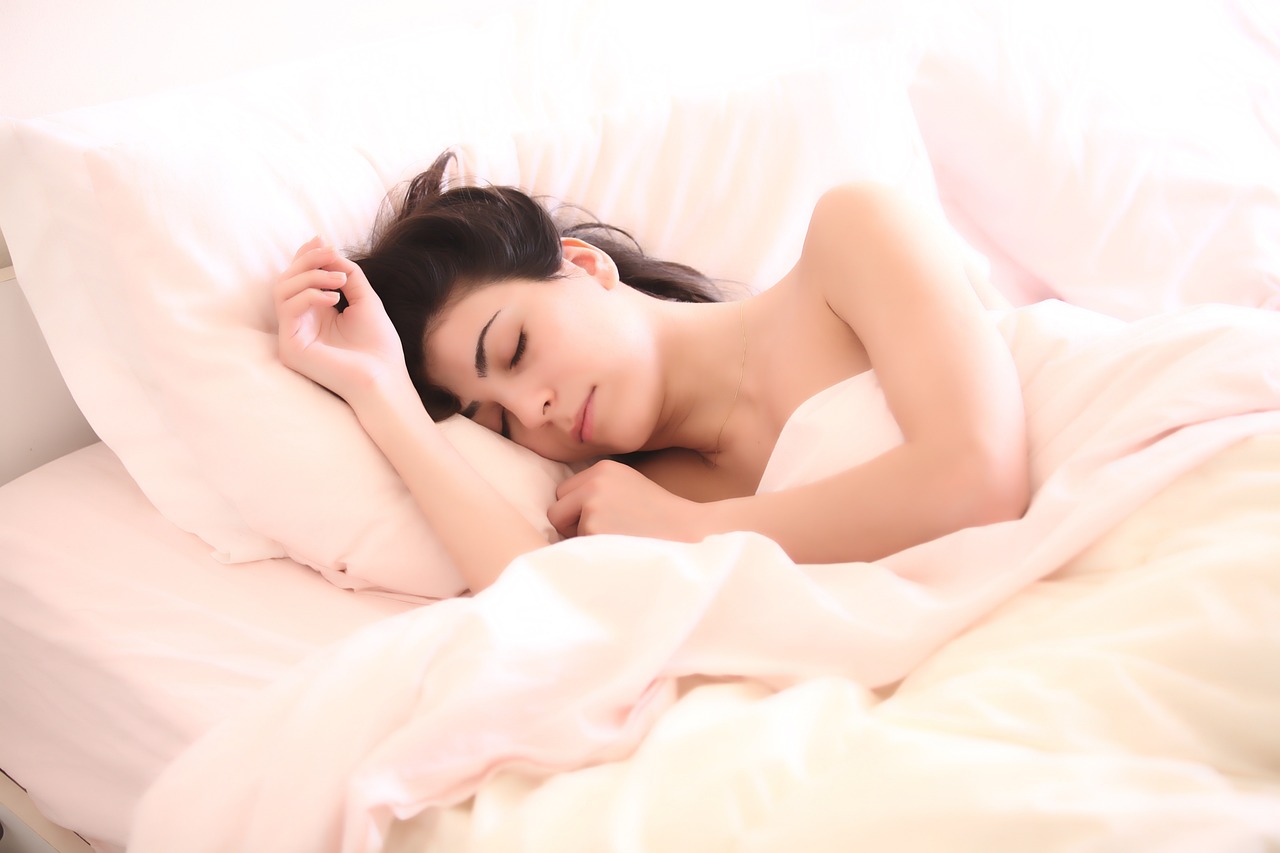Sleep is so vital to our well-being and quality of life. Our body recharges when we sleep. Fatigue reduces our ability to function well at work and get along with our families, coworkers, and others. We are less likely to do things to keep ourselves healthy such as exercising and making healthy dietary choices. Chronic sleep deprivation has been linked to increased risk of heart attack, high blood pressure, and obesity.
Sleep can be disturbed by declining estrogen during perimenopause and after menopause which can cause night sweats. Sleep changes also occur with aging alone. In the years leading up to menopause, a decrease in estrogen causes our hypothalamus, our brain’s thermostat, to alter its sensitivity to temperature changes. When our temperature rises above a certain setpoint, our hypothalamus acts to cool us down. Our blood vessels dilate and produce the dreaded hot flashes and night sweats. When this happens, we feel warm and sweaty and then may be wet and cold. It may seem that hot flashes are causing us to awaken, but new research suggests that we may wake right before the hot flash. These awakenings can happen infrequently or frequently. Some women wake hourly! It can be difficult to get back to sleep if our clothes and bedding are soaked. We may feel anxious from the episode, and our minds can begin to wander and worry.

Lifestyle Changes for Night Sweats/Sleep
Try these preventive steps at home to reduce the occurrence and severity of night sweats.
- Keep the bedroom dark and cool
- Use bedding and pajamas that are cooling and wick away moisture
- Avoid spicy foods, caffeine, smoking, and alcohol. (Alcohol may cause us to fall asleep, but it can contribute to poor REM sleep which is important for learning and memory. Alcohol may also cause awakening in the middle of the night.)
- Avoid eating within 3 hours of bedtime to allow time for digestion, but not so much that you go to bed hungry
- Avoid caffeine 6 hours or more before your bedtime– some individuals may need to stop drinking caffeine even earlier if they are slow metabolizers of caffeine
- Limit fluids prior to bedtime to reduce getting up in the night to urinate
- Keep pets out of your beds as some of those furballs can be disruptive!
- Exercise has been shown to promote sleep as well as our general health, but for some can interfere with sleep if done too close to bedtime
- Take a warm bath or shower to promote relaxation and drowsiness
- Relax in low light prior to bedtime and turn off electronics for several hours prior to sleep. The light from devices can suppress melatonin release and throw off our normal sleep/wake rhythm, plus scrolling can keep the mind active and anxious. Devices should be silenced or kept out of the bedroom.
- Go to sleep and wake up at the same time daily
- Avoid long naps during the day

Supplements and Medication
- If lifestyle changes don’t help and sleep disturbances are occurring with night sweats and other perimenopausal symptoms, talk to your doctor about hormonal therapy which can reduce or eliminate hot flashes and night sweats. Studies have shown improvement in insomnia during menopause with hormone usage independent of night sweats.
- If you are not a candidate for hormone therapy, there are non-hormonal supplements and other prescription medications that can reduce hot flashes and night sweats. A small study showed curcumin 500 mg daily reduced hot flashes more than placebo after 4 weeks and Vitamin E 200 mg daily reduced hot flashes after 8 weeks of use1. Curcumin is a bioactive anti-inflammatory compound found in turmeric. Relizen® is a supplement made with a Swedish flower pollen extract that has been shown to reduce hot flashes, irritability, and fatigue in perimenopausal and menopausal women2. Supplements are not prescriptions and not regulated by the FDA for quality or dosage.
- Melatonin may be tried at a low dose of 1-5 mg to help fall asleep. Data suggests melatonin may be most helpful for individuals with delayed sleep disorder (night owls) and for jet lag. There is no long-term data for safety of melatonin, and like all supplements, must be used with caution.
- Insomnia may also be treated with prescription medications if necessary.
1Clinical Efficacy of Curcumin and Vitamin E on Inflammatory-Oxidative Stress Biomarkers and Primary Symptoms of Menopause in Healthy Postmenopausal Women: A Triple-Blind Randomized Controlled Trial
https://www.ncbi.nlm.nih.gov/pmc/articles/PMC9203212/J Nutr Metab. 2022; 2022: 6339715.
2Non-Hormonal Treatment of Perimenopausal and Menopausal Climacteric Symptoms [1A]
See your doctor if lifestyle changes don’t help so you can be evaluated for other causes and get the help you need. Medical conditions like sleep apnea, anxiety, and depression can cause sleep disturbances. Hot flashes and night sweats may be caused by other things such as medications, infections, thyroid disease, and certain cancers.

